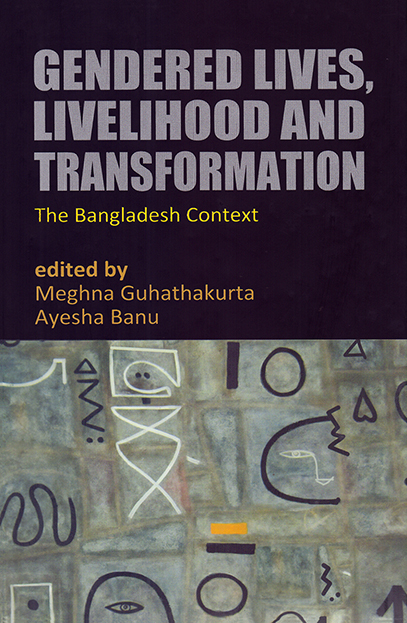
- Shop
- Gendered Lives, Livelihood and Transformation: The Bangladesh Context
Gendered Lives, Livelihood and Transformation: The Bangladesh Context
https://uplbooks.com/shop/9789845062466-gendered-lives-livelihood-and-transformation-the-bangladesh-context-8379 https://uplbooks.com/web/image/product.template/8379/image_1920?unique=3d813f3
| Language: English |
Tags :
Book Info
Agriculture was once the basis of the socio-economic structure of Bangladesh, but in the last forty years the rain-fed agricultural subsystem has undergone transformation. In recent decades, irrigation and the introduction of High Yielding Variety (HYV) rice has worked to make Boro the highest-producing rice season – transforming Bangladesh from the “basket case” of the seventies into an economy that is self-sufficient in food.Although the Bangladeshi economy continues to be agriculture-based, this formerly firm foundation is undergoing immense changes and shifts. The reasons for this could be demographic pressures and the division and fragmentation of farmland, which is causing landlessness and a higher rate of migration to the cities. Migration has not been limited to the cities within Bangladesh, but also extended to other global cities. Currently Bangladesh is one of the main origin countries for migrant workers in the world.This book dwells upon gendered lives and livelihoods, exploring the dynamics of this transformation from a subsistence economy into a capitalist one, with an eye on those areas that have been under-researched thus far. The focus on multiple dimensions of the everyday lives of women explored here has revealed the different facets of social transformation and helped us to better understand these processes of change. The essays in this anthology are microcosmic studies deliberately chosen to demonstrate the understated realities of peripheral economies. The subjects vary from indigenous women engaged in jhum cultivation, Dalit women embedded in caste-specific work structures and relations, female-headed households in rural areas, and elderly women from city slums. All of the studies are products of original fieldwork that has produced rich qualitative data and a limited amount of quantitative data. It is expected that the analysis of such data will be a precursor to theory-building efforts in this vital area as well as be assisting in future policymaking discourses.

Ayesha Banu
Ayesha Banu is an Associate Professor and former Chair of the Department of Women and Gender Studies, at Dhaka University. She received her Ph.D. from Dhaka University in 2015 and completed her first Master's in Sociology from Dhaka University in 1989. She was awarded a Commonwealth Scholarship and pursued her second Master's in Gender and Development at IDS, Sussex during 1993-1994. Her areas of interest are women’s movements, feminist theory, poverty, and issues related to gender and development.

Meghna Guhathakurta
Meghna Guhathakurta was a Professor at the Department of International Relations at the University of Dhaka and is currently the Executive Director of Research Initiatives Bangladesh (RIB). She is also a member of the Executive Committee of Ain o Salish Kendra (ASK).


